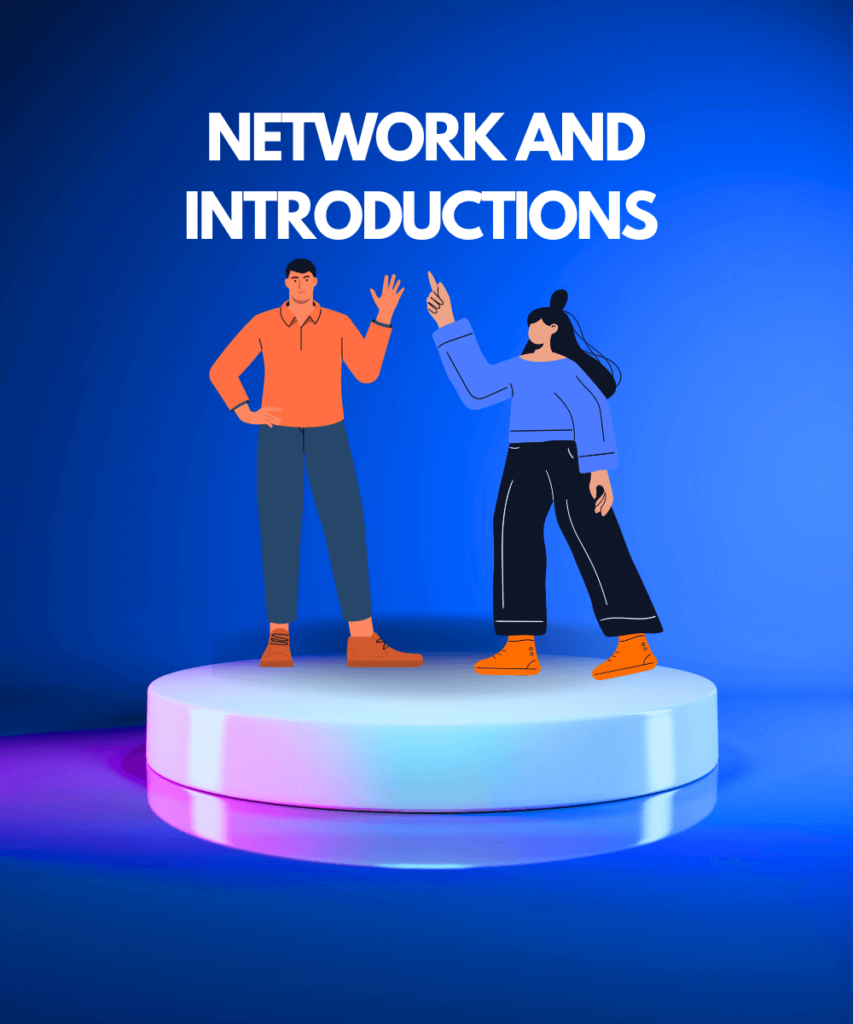It’s a query we’ve all requested ourselves at one matter or another: why don’t we always hire the best candidates? After all, shouldn’t that be the goal?
Unfortunately, it’s not always that simple. In many cases, other factors can impact a company’s decision-making process. We asked recruiters why the best candidate only sometimes gets the job.
Let’s get more in-depth!

We all know the saying, “It’s not what you know, it’s who you know.”
And when it comes to position hunting, that adage is particularly true. Ask any seasoned recruiter, and they’ll tell you a great resume and top-notch qualifications are only part of the equation when landing your dream job.
Ultimately, who you know (and who knows you) will often make or break your job search. So, if you’re wondering why you accomplished getting that position you wanted, even though you had all the right capabilities, it could be because you weren’t bonded to the right people.
This doesn’t mean you should give up hope if you don’t have a lot of connections.
Plenty of other factors come into play when it comes to hiring, and there are ways to make yourself more attractive to employers, even if you don’t know anyone in the industry. But it’s essential to be aware of connections’ role in the hiring process so you can be strategic about making them.
One of the most common reasons the best candidate is only sometimes hired is the hiring manager’s personal preferences. Engaging managers are also humans, and humans often need to be more flexible.
Hence, recruiters will subconsciously prefer a candidate who seems similar to them or fits their subjective ideals.
Since these preferences are subconscious, avoiding them can be difficult, and candidates need more control over them. But if companies know them, they can take steps to mitigate their impact. That’s why having multiple hiring managers involved in the interviews is better for you than you think.
Additional read: What is a Recruitment Database, and How to Use it?


Another reason the best candidate might not get the job is their cultural fit.
Recruiter Amanda Augustine adds, “Companies want to hire candidates who will mesh well with their current employees and corporation culture.” For this reason, “even if a candidate is technically the finest someone for the job, they might not be shown the position if it is selected that they would not be a good fit.”
Companies take the time to define their preferred culture and what type of candidates would be a good fit. This will help ensure everyone involved in the hiring process is on the same page and looking for the same thing.
Ensure to check the company’s culture before you apply.
Additional reads: The Best Talent Acquisition Tools 2023 [Complete Guide]
You’re applying for a specific opportunity because it fits your lifestyle perfectly. You can take your kids to school or pick them up, continue on with your weekend social life, or other activities you might have to give up otherwise.
While this is excellent for you, the hiring manager may want to hear something else. They’re additionally concerned with how good of a fit you are for them. The focus should be on why you’re a good candidate for the position rather than how the role fits you.
It’s always important to ask questions during an interview. Inquiring about knowledge that is considered improper can seem negative.
Refrain from questioning the following:
Pushing for this information means you’re in it only for compensation and benefits. If you’re an excellent fit for the position, you’ll be offered a deal where details like these will be included.
It’s best to wait until then to examine them.
You might not keep track of things you’ve done over your past few jobs, but potential bosses want to know what you’ve done previously. Your accomplishments are significant. Record them all and include them on your CV.
However, don’t go overboard: There is such a thing as having too much of a good thing. When your resume is overflowing with accomplishments, it can work against you.
Here’s why:
If your resume is crammed full of accomplishments, it’s essential to take a step back and assess whether or not it’s actually helping or hurting your job search. There are times when less really is more.
Did you leave your last place of work on the wrong note?
There are a few reasons why your previous employer might be the reason you’re not getting hired.
It could be that your former boss didn’t give you a good reference or that your job performance at your previous company could have been better. Additionally, your industry is in flux, and your previous employer is no longer considered a valuable workplace.
Whatever the reason, it’s essential to be honest with potential employers about your previous job situation to give them the complete picture of your experience and qualifications.
Remember: Hiring managers rely on references to guide them in the right direction when hiring.
Make sure your resume is proficient and has no typos. Even the slightest grammatical error or accidental letter use can cause an employer to choose another candidate. Employers will view your resume as unprofessional and sloppy, reflecting poorly on your attention to detail.
Another thing to remember is length: When it comes to resumes, less is often more. Employers want a concise, easy-to-read document highlighting your most relevant qualifications and experience. Employers will likely only read your resume if it is at most two pages long.
Not tailoring your resume is another mistake — Generic resumes are a huge turnoff for employers because they show that you haven’t bothered to customize your application to their company. If you want to make sure your resume stands out, take the time to tailor it to each individual job you apply for.
While ensuring your resume looks professional is essential, you want to stay moderate with the design. Stick to a simple format and use easy-to-read fonts so employers can quickly scan your resume and find the information they want.
Your cover letter is one of the first things a potential employer will see, so making a good impression is essential. Unfortunately, many talented job seekers don’t put adequate time and effort into their cover letters, and as a result, they get rejected.
A few common mistakes can doom a cover letter, such as not tailoring it to the specific job or not providing enough detail about your qualifications. But even if you avoid those pitfalls, a few things can make your cover letter less than impressive.
There are times when less really is more. This can make your cover letter sound like you’re just going through the motions and will only do something to set you apart from the other candidates. Instead, try to use language that’s more natural and engaging.
Another area for improvement is including too much information about your personal life or hobbies. It’s OK to mention a few interests outside of work, but only go into some detail. Remember, your cover letter should focus on your professional qualifications.
Refrain from sounding desperate or needy. Be confident in your capabilities, and avoid phrases like “I would be appreciative for a prospect to interview” or “I would respect your consideration.”
These statements make you voice like you’re begging for a chance, and that’s not the appearance you want to give.
To land the gig you want, you must stand out from the crowd – no one will know you are the most qualified if you don’t show it.
Overly formal language is one of the most typical issues. So, what makes a contact method unprofessional?
Here are a few examples:
If any of your contact methods fall into one of the above categories, it’s time to change.
Creating a professional email address and phone number is manageable and could make all the difference in whether or not you get hired. Make sure to allow out-of-date contact information to prevent you from succeeding.
In addition, make sure to put your current workplace as an appropriate way to contact you.
Sometimes, those who are overqualified won’t get the position.
One reason is that the overqualified candidate may be less likely to stay in the position for long. The overqualified candidate may have higher salary expectations, which can be a turnoff for employers.
Additionally, overqualified candidates may need to fit the position or company culture better.
Eventually, recruiters may fear overqualified candidates being exhausted by the position and quickly becoming disengaged.
If you’re an overqualified candidate, you must be aware of these potential concerns and address them head-on in your application materials.
Internal candidates take precedence over others, even when they’re not as talented.
There are many motives why recruiters may prefer to hire interior candidates over outer ones:
Ultimately, each company’s reasons for selecting internal candidates will vary, but these are some of the most familiar.
While it’s true that some companies don’t always hire the best candidates, there are several reasons why this might be the case. From a lack of available talent to a mismatch in skills, a variety of factors can prevent even the most qualified candidates from getting the job.
At the end of the day, it’s necessary to remember that the hiring method is far from excellent. But by understanding why the best candidates don’t always get the job, you can increase your chances of landing that dream gig.
DSD Recruitment combines deep staffing & recruiting knowledge with specialized expertise in RPO Solution Globally.